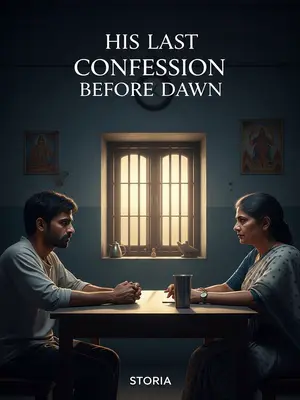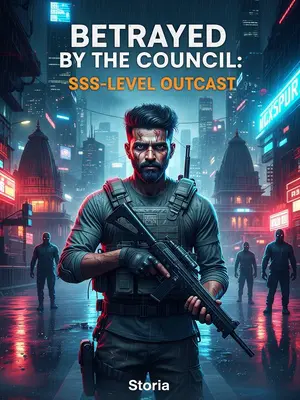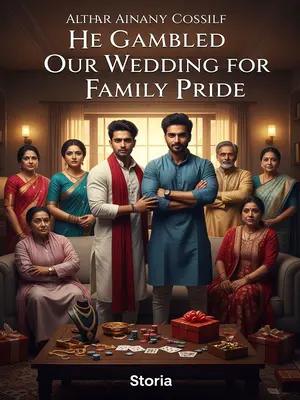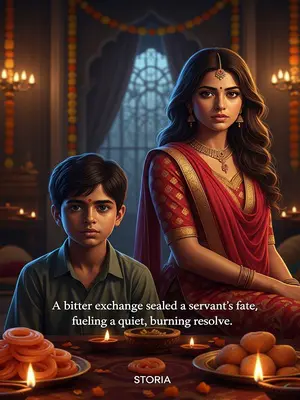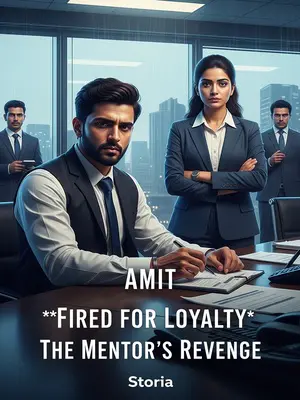Chapter 2: The Execution and Exile
After Uncle Dev left, I handed over the family's affairs to my younger brother, Kunal, and secretly set out with Meera.
The haveli was alive with early morning chaos—servants bustling, my mother pausing her prayers to smear a dab of kumkum on my forehead and tie a black thread on my wrist for protection. Kunal, always pretending to be brave, hesitated, then bent to touch my feet in a half-hearted, embarrassed way before I pulled him up for a tight hug. His eyes, though, shone with unspoken worry. I pressed his palm, promising silently to return, and slipped away with Meera while the city still slept.
Firstly, because assisting the Prime Minister in the Northern Campaign is an obsession for all those who came after. Secondly, because the words he left behind left me completely confused.
The weight of family legacy pressed down heavier than the old ancestral sword. Everywhere I went, whispers followed—‘Arjun will do what is right, just like his father.’ But Uncle Dev’s riddles chased themselves around my mind, slippery as monsoon mud. Nothing made sense anymore.
A few days later, I arrived in Lucknow with the army and immediately heard a deafening bell ringing.
Lucknow’s morning was thick with the aroma of chai and fried kachoris from the lanes. Yet that comfort shattered when a bell tolled so loudly it felt like the sky itself was tearing. The sound rattled windows and sent shivers through my bones.
There was no temple or bell nearby, yet the sound echoed clearly in my ears.
It was uncanny—the clang rang out through the alleys, though not a single mandir was anywhere in sight. My head throbbed with the pain, and I wondered if my mind was playing tricks, but the agony was too real.
It wasn’t just me—everyone around heard it too. They all clutched their heads in pain, as if the bell’s sound did not come from this world.
Men staggered in the chowk, women dropped their water pots, children wailed. Faces twisted in pain, hands pressed to ears as if the bell had wormed straight into their souls. The usual chatter of hawkers was silenced, replaced by a fear I’d never seen.
When the bell finally stopped, Lakshman walked out of the palace and stood before everyone. Behind him was an expressionless attendant, while Lakshman himself was in tears. He took a deep breath and shouted:
His voice broke as he faced the stunned crowd. Sweat streaked down his brow, and his hands shook, barely holding together the dignity of his Nawabi ancestors. The attendant behind him, stiff as stone, offered nothing but silence.
"Prime Minister Dev, Rajpur's Guardian, Uncle Dev, has colluded with the enemy and intends to rebel. The evidence is conclusive. He shall—"
The crowd gasped. Meera’s grip tightened on my sleeve, her nails biting into my skin. The air felt heavy, thick with the sense that something sacred was about to be lost forever.
Before Lakshman could finish, Uncle Dev was dragged up onto the city wall by soldiers and pushed off. A thin rope snapped tight around his neck, stopping his fall—and ending his life.
Suddenly, an old family retainer tried to push through the crowd, crying, "Babuji! Don’t do this!" but soldiers held him back as Uncle Dev’s body swung from the wall. My hands clenched the front of my kurta so tightly my knuckles turned white. The crowd gasped as one, a silence falling so deep that the distant toll of a temple bell—or was it the azaan—cut through like a knife.
At that moment, Lakshman uttered the final two words:
"Death penalty."
The words fell like a curse. No one dared meet another’s eyes. Even the pigeons on the palace cornices scattered, as if fleeing the shadow of those words.
As the second bell faded, I realized: this world would demand a price for every secret I kept.

